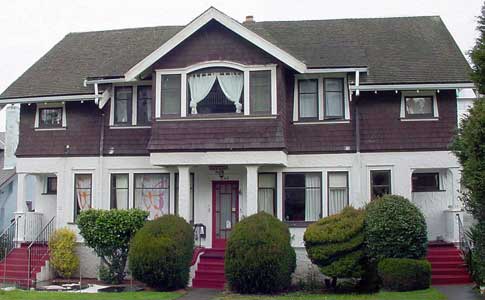16:16 (GMT+7) - Thursday, March 10, 2011
Dzung Trieu Law firm_Hopes are high that recent moves by authorities will make Vietnam’s real estate market become more transparent and stable in the future.
The Prime Minister recently signed Decision No 80/2010/QD-TTg on freezing construction fees for all projects throughout the country, to take effect on February 2. The decision was issued based on recommendations from the Ministry of Finance (MoF) in early September on abolishing construction charges and fees imposed on companies or individuals.
Construction fees are currently calculated under Circular No 97/2006 from MoF, charged at a certain percentage depending on the type of construction and the location.
However, according to the Ministry of Construction (MoC) and MoF, some localities have implemented different fee levels. To encourage investment, some localities issue preferential policies for certain construction projects, such as low-income housing or buildings for education, health, culture, or sports.
MoF said that freezing construction fees will help to reduce the administrative burden on organisations and individuals. It will also help to reduce the overall cost of investment projects, encourage investment in the construction sector and create a favourable investment environment and ensuring the social welfare policies of the State.
The Prime Minister’s decision is a good sign for investors. Mr Nguyen Van Duc, Director of Dat Lanh Real Estate Co., Ltd, said that freezing construction fees will result in easier administrative procedures and save time. “Many enterprises spend a lot of time and ‘extra’ money on these procedures, so further reduction would be even better,” he said.
A representative from the General Department of Land Administration also said it was a welcome move. Many of the existing fees and costs are unreasonable and create problems for individuals or investors.
Meanwhile, a scheme to raise legal capital at real estate businesses is also being deployed by MoC and will be applied next year. According to Law on Real Estate, businesses need a minimum of VND6 billion ($307,000) to be registered.
Deputy Minister of Construction Nguyen Tran Nam said that the level of legal capital now required is inadequate because real estate projects, even small-scale ones, involve huge amounts of capital. Therefore, leaders at MoC believe that many investors are “empty-handed investors”, wanting to develop projects even when they do not have the capital to do so.
Without increasing the legal capital it will be difficult to manage the operations of enterprises. “To mitigate these shortcomings and make the market more transparent and stable, MoC will soon complete a regulation on increasing the legal capital required by real estate companies,” Mr Nam said.
Statistics from MoC show that as at the end of October there were more than 2,500 real estate projects in urban areas and business ventures in real estate on some 80,000 ha of land in all provinces, which are mainly concentrated in Ho Chi Minh City, with 1,400 projects, and 800 projects in Hanoi. Some 250 condominium projects are currently waiting for approval by Hanoi authorities.
Many real estate experts say that by increasing the legal capital the real estate market will become more professional and only feature companies with sound financial capacity. “Capital is always a difficult question in Vietnam,” one expert said. “When investing in real estate, the focus shouldn’t just be on their capital but also on their ability to access loans and their collateral.”
In order to assess the operational result of enterprises, it is necessary to check their financial reports to determine how their capital is invested and used.
One expert from the Ho Chi Minh City Economics University pointed out that businesses follow a very complicated procedure when having their legal capital certified. Under Circular No 13 issued by MoC, enterprises must have proof from banks about money deposited by founding members of the company.
He said that here he can see some misunderstanding between the concepts of “legal capital” and “deposited money”. When shareholders contribute capital in assets there must be certificates regarding a valuation of those assets. In other cases, enterprises must show certificates from audit firms. “The regulations make procedures for certified legal capital very complicated and time consuming,” he said.
New policies are to encourage the real estate market to develop more in the future, but much more needs to be done. At a conference in 2010 on housing and real estate market development, Deputy Minister Nam said that the area of housing and real estate development still has many shortcomings that need to be overcome.
The legal framework for the real estate market, he said, though gradually improving, still has many problems that need further attention, such as important mechanisms and policies like those on long-term financial mobilisation for real estate market development, transaction levies, property taxes, incentives for rental housing and so on.
NGO THANH (news.vneconomy)












